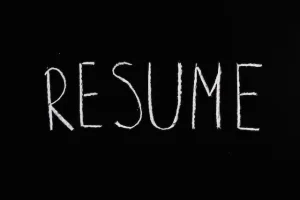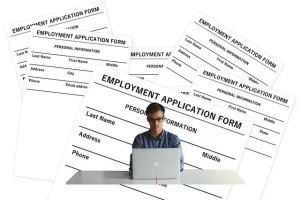Looking for a Job in Australia: Our Journey and Tips for Newcomers
Back in our home country, my husband and I both had stable careers. He was an IT professional working for a multinational company. Meanwhile, I was a finance expert in the telecommunications industry. We never imagined that after moving to Australia, we would face a year of unemployment. But that’s exactly what happened—my husband only landed his first job one year after we started our new life here.
Before we made the move, we agreed that I would stay home to take care of our then 2-year-old daughter, allowing her to adjust to the new environment. Fortunately, we had the support of my sister-in-law, who welcomed us into her home when we arrived. However, finding a job proved to be much harder than we expected. Especially with all the considerations like location, job type, and proximity to public transport since we didn’t have a car yet.
Challenges We Faced in Finding a Job in Australia
Starting a new life in Australia comes with unique challenges, especially when it comes to job hunting. Here are some of the hurdles we encountered:
- No recent job-hunting experience: We had not looked for jobs for years, therefore our skills were rusty.
- Lack of local experience: Employers often prefer candidates with Australian work experience, which we didn’t have.
- Unfamiliarity with the employment process: We were learning the ropes of the Australian job market from scratch.
- Cultural differences: Understanding the nuances of Australian workplace culture was a steep learning curve.
- Limited network: We had few local connections to help us get our foot in the door.
Despite these obstacles, we eventually found our way. Here are our top tips to help you navigate the Australian job market and land your first job.
Our 10 Best Job Search Tips in Australia
1. Create Your Profile on LinkedIn, Seek, and Indeed
Before we even arrived in Australia, my husband started his job search on platforms like LinkedIn, Seek, and Indeed. We used LinkedIn to build a professional network—think of it as the “Facebook” of your career. Seek and Indeed are popular job-seeker websites that can help you find the latest opportunities.
Pro Tip: Keep your LinkedIn profile updated and connect with professionals in your field. Networking can open doors to opportunities you wouldn’t find on job boards.
2. Prepare Your Resume and Cover Letter
We took time to update our resumes and create a cover letter template tailored to the Australian job market. In Australia, most companies require a cover letter in addition to your resume. This should not just be a template you copy and paste. Instead, customize it for each application to highlight how your skills match the job requirements. Keep it concise—ideally no more than one page.
Pro Tip: The cover letter should demonstrate your understanding of the role and how you can add value to the company. This is your chance to stand out!

3. Make a List of Job Considerations
We made a list of non-negotiables to guide our job search, including job type and proximity to where we were staying. Aside from that, we also considered access to public transport, company reputation, and salary expectations. While many suggest taking any job when you’re new to Australia, we prioritized stability and accessibility. We looked only for permanent full-time roles near public transport, as we didn’t own a car.
Pro Tip: Knowing your priorities helps you stay focused and find a job that aligns with your needs and values.
4. Submit Job Applications
With our updated resume, customized cover letters, and our list of non-negotiables, we started submitting applications. We made sure to address the key responsibilities of each job in our cover letters. This is to show that we understood the role and were a good fit.
Pro Tip: Regularly apply and don’t let rejections discourage you. Treat each application as a chance to learn.

5. Enhance Your Soft Skills
Technical skills alone aren’t always enough to secure a job—you also need strong soft skills, especially communication. We worked on improving our soft skills by reading books and attending workshops. We also practiced common interview questions.
Pro Tip: Developing confidence and effective communication can make you stand out in interviews. Invest time in honing these skills.
6. Prepare Thoroughly for Interviews
Once we started getting interview calls, we prepared extensively. We researched each company, their values, and their work culture. In that way, we could tailor our responses accordingly. My husband used public transport to get to his interviews, carefully planning his route and timing. We dressed appropriately and arrived early to make a good first impression.
Pro Tip: Practice answering questions using the STAR method (Situation, Task, Action, Result) to structure your responses effectively.
7. Be Mindful During the Interview
During interviews, we paid close attention to our body language and maintained eye contact with the interviewer. We used the STAR (Situation, Task, Action, Result) method which helped us clearly articulate our past experiences and achievements. In addition, smiling and being professional throughout the process helped create a positive atmosphere.
Pro Tip: You should be authentic and let your personality shine through. Employers seek someone who not only possesses the skills but also fits the company culture.

8. Keep Looking for Opportunities
Even while waiting for responses after interviews, we continued applying for other jobs. We used every experience as a learning opportunity to improve for the next one. Whether that meant tweaking our resume or practicing answers for common interview questions.
Pro Tip: Persistence drives success. Refine your approach and stay active in your job search.
9. Review Job Offers Carefully
When job offers started coming in, we made sure to compare the offer details with the original job advertisement. One time, my husband received an offer that didn’t match what was posted online. Clarifying these discrepancies early helped ensure the terms were correct before accepting.
Pro Tip: Take your time to evaluate the offer before accepting it. Ensure that the job aligns with your expectations and career goals.

10. Make a Great First Impression on Your First Day
On your first day at work, dress appropriately and arrive early. Making a positive impression can set the tone for your new role and help you settle in more smoothly.
Pro Tip: Arriving on time and being prepared on your first day demonstrates your reliability and eagerness to start contributing.
Final Thoughts: Be Patient and Keep Going
Finding your first job in Australia can feel daunting and requires a lot of patience. Don’t be discouraged if you don’t land a job exactly like the one you had back home. Sometimes, the journey leads to unexpected opportunities that may be even better than what you imagined. Stay resilient, keep learning, and believe that your hard work will pay off.
Your Australian adventure is just beginning, and finding the right job is a crucial step toward building the life you dream of.
